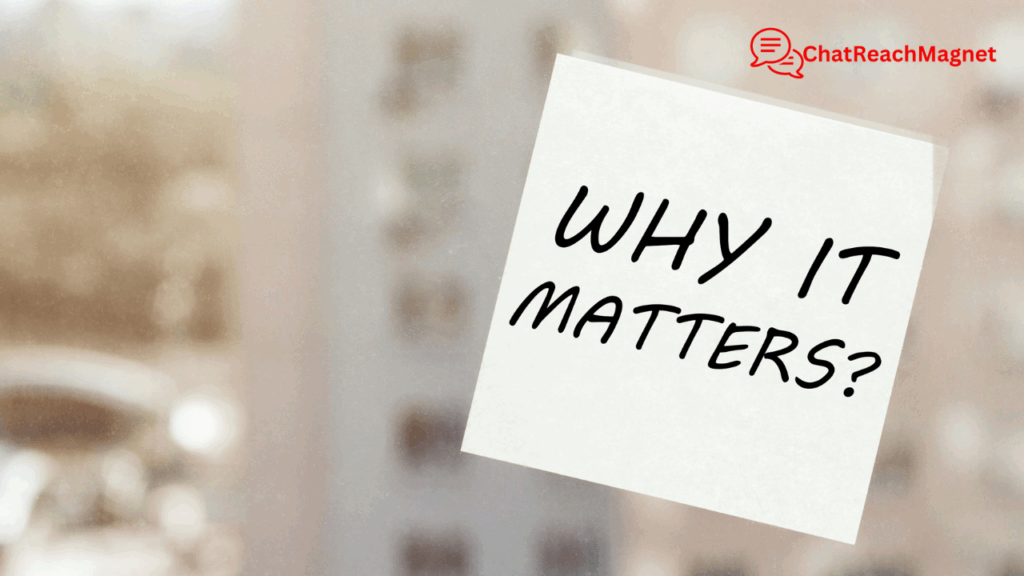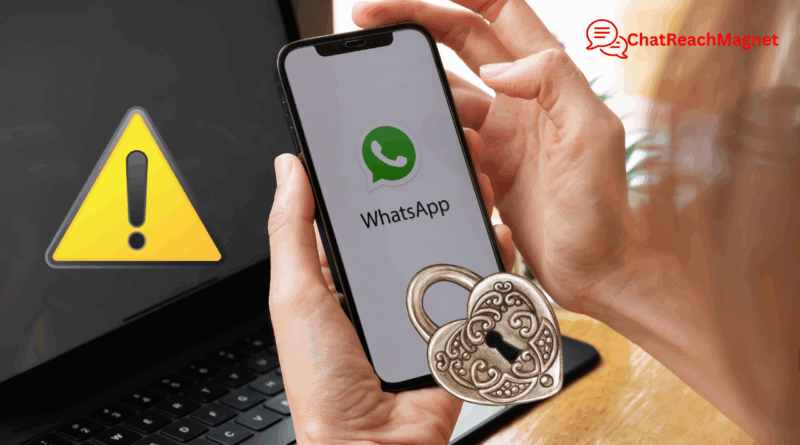A Complete Guide to WhatsApp Data Security: End-to-End Encryption & API
Did you know that WhatsApp data security is one of the biggest reasons people trust the app for both casual chats and serious business conversations?
Yep, with over 2 billion users worldwide, WhatsApp is more than just a place to share memes, voice notes, or family updates—it’s also a fortress for sensitive information.
And no, we’re not just talking about locking down your messages from nosy siblings or curious friends. (Though that’s a nice bonus!) This is about protecting everything from private photos to confidential business deals.
Whether you’re running a company or just checking in on your group chats, knowing how safe your data really is can give you peace of mind.
So, what’s the secret sauce behind WhatsApp data security?
End-to-end encryption. API protection. Privacy-first design. The best part? You don’t have to be a tech genius to benefit—it all happens automatically in the background.
In this guide, we’re breaking down exactly how WhatsApp data security works, what features keep your information safe, and what you should keep in mind as both a user and a business.
Time to stop wondering and start understanding how WhatsApp keeps your conversations locked tight. Let’s dive in.
Why Data Security on WhatsApp Matters

As more of our daily activities shift online, messaging apps like WhatsApp have become essential tools for communication, marketing, and business transactions. However, this also means:
- Cyber threats such as hacking, phishing, and data theft are on the rise.
- Privacy concerns around who can access your chats and shared files are constant.
- Regulatory compliance is important for businesses using WhatsApp for customer communication.
Understanding how WhatsApp secures your data can give you peace of mind and help you use the platform more responsibly.
What is End-to-End Encryption (E2EE)?
At the heart of WhatsApp’s security system is End-to-End Encryption (E2EE). This ensures that only the sender and the recipient of a message can read its contents. Even WhatsApp itself cannot access your messages.
How It Works:
- Message Encryption – When you send a message, it is converted into unreadable code using a unique encryption key.
- Message Transmission – The encrypted message travels through WhatsApp’s servers, but remains locked.
- Message Decryption – Only the recipient’s device, with its own private decryption key, can unlock and read the message.
This means that even if hackers intercept the message or if WhatsApp’s servers are compromised, the information remains unreadable.
What’s Protected by End-to-End Encryption?
- Text messages
- Voice calls and video calls
- Photos, videos, and documents
- Voice notes
- Group chats
In short, everything you send on WhatsApp is protected by E2EE.
WhatsApp Business API and Data Security
While individual users rely on the WhatsApp app, businesses often use the WhatsApp Business API to connect with customers at scale. This raises an important question: Is the API secure?
Security Measures in WhatsApp Business API:
- End-to-End Encryption Still Applies
Messages between customers and businesses remain encrypted. However, businesses may store these messages in their systems after decryption for operational purposes. - User Consent
WhatsApp ensures businesses cannot spam customers. A user must first opt in before a company can message them. - Secure Hosting
Businesses using the API must host their communication on secure servers (either on-premise or cloud). Security best practices such as SSL certificates, firewalls, and encryption protocols are recommended. - Data Handling by Third Parties
If businesses work with solution providers, they must ensure that these providers follow strict security guidelines to prevent misuse of customer data.
Common Security Threats on WhatsApp
Even with strong encryption, some risks remain. These are often linked to user behaviour rather than WhatsApp itself:
- Phishing Attacks – Fraudsters send fake messages pretending to be official businesses to steal personal data.
- Malware Links – Clicking on unsafe links can compromise your device.
- Social Engineering – Attackers trick users into sharing security codes or sensitive information.
- Backup Vulnerabilities – WhatsApp backups stored on Google Drive or iCloud may not always be encrypted, depending on settings.
How to Maximise Your WhatsApp Security
To make the most of WhatsApp’s security features, both individuals and businesses should take extra precautions:
For Individual Users:
- Enable Two-Step Verification (2FA) – Add a PIN for an extra layer of protection.
- Keep the App Updated – Regular updates fix security loopholes.
- Be Wary of Unknown Links – Do not click on suspicious links or share OTPs.
- Encrypt Backups – In settings, enable encrypted backups to secure your chat history.
- Lock Your App – Use fingerprint or face ID lock for added privacy.
For Businesses:
- Use Verified Business Accounts – Gain customer trust with official verification.
- Secure API Hosting – Ensure your server or cloud provider has robust data protection measures.
- Limit Access – Restrict employee access to customer chats to reduce risks.
- Monitor Conversations – Ensure compliance with data protection regulations (like GDPR).
- Work with Trusted Providers – Only integrate with official WhatsApp Business Solution Providers.
WhatsApp Security vs Other Messaging Apps
Some users compare WhatsApp with alternatives like Telegram or Signal. While Telegram offers cloud-based storage and Signal is praised for advanced encryption, WhatsApp balances security, accessibility, and global reach.
- WhatsApp – Strong E2EE + Business API integration.
- Signal – Strong encryption, but limited business use.
- Telegram – Flexible features, but end-to-end encryption is not default for all chats.
This makes WhatsApp a secure yet practical choice for both personal and business communication.
The Future of WhatsApp Data Security
Meta (WhatsApp’s parent company) continues to improve the platform’s privacy features. Some future developments may include:
- Advanced encryption for backups by default
- AI-driven threat detection to block scams
- Stronger authentication for business APIs
- Integration with global privacy regulations
These improvements aim to keep WhatsApp ahead in the evolving landscape of digital security.
Conclusions
WhatsApp has built a strong reputation for protecting user privacy with end-to-end encryption. For businesses, the WhatsApp Business API provides secure customer interactions, though the responsibility of safe data handling partly lies with the business itself.
As cyber threats continue to evolve, staying updated on WhatsApp’s security features and adopting best practices can help you safeguard your personal or business data.
In summary:
- Your messages are secure with end-to-end encryption.
- Businesses can communicate safely using the WhatsApp API, provided they follow compliance rules.
- Users must remain vigilant against scams and phishing attempts.
By combining WhatsApp’s built-in protections with smart user habits, you can enjoy safe, seamless, and private communication.

